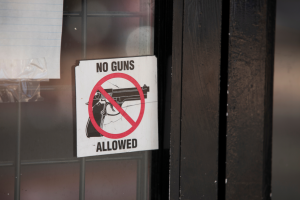It seems that easy sex is rampant on college campuses today, but new research reveals that students really want romance.
When Donna Freitas offered a class on dating and spirituality at St. Michael’s College in Vermont, she didn’t know her students would want to change the social scene at the Catholic liberal arts school. But when they learned that none of them liked the culture of casual sex on campus, they decided to create a newspaper discussing “hook-up culture” and got the whole school talking about it.
“It was the most extraordinary experience I ever had as a professor,” Freitas says. “But I also started to wonder: Is it like this elsewhere?”
Her book Sex and the Soul (Oxford) documents what she found surveying 2,500 students and interviewing 111 about religion and sex at seven colleges—Catholic, evangelical, public, and private.
She found casual sex on all but the evangelical campuses, but she also found that students lie about how much sex they have and about liking the culture of casual sex. Worse, college administrations lie by denying that hook-up culture even exists.
“I just finished my 14th year as a teacher, and in my experience, if students are struggling with something, if there is an unmet need, you come up with resources to answer the need,” Freitas says.
The good news, though, is that there is a way out. All it takes, Freitas says, is speaking the truth.
What is a hook-up?
I asked every single person in the study how they defined it, and I learned that a hook-up is any sexually intimate activity—it could be as innocent as kissing or it could be intercourse—but what defines it is that it’s casual, unplanned, with no commitment. It often involves alcohol and little talking.
How prevalent is hooking up on Catholic campuses?
The reality is that Catholic colleges are like secular colleges. Everywhere I’ve been, students say the same thing about hook-up culture. The only exceptions are evangelical schools.
The perception is that everybody hooks up all the time and loves it, but in reality people are hooking up far less than they think others are. A lot of students had one hook-up experience, but that certainly is not rampant. People lie about how much sex they’re having and inflate what’s going on because the social pressure to hook up is really enormous.
There are a few students who really do love hook-up culture. They are the kings and queens of the school—the purveyors of hook-up culture—especially on small campuses, but they are very few and far between.
Is hook-up culture new?
I graduated from Georgetown in 1994, and I knew about hooking up. But it also meant, “Let’s hook up for happy hour.” You knew who the hook-up crowd was, but it wasn’t pervasive.
Now this Animal House, frat-boy behavior is the norm on many campuses. You don’t have to join a frat to go to theme parties where men dress up as “pimps” and women dress as their “whores.” When I was in college, we had events like “preppy” parties, but now there are a number of variations on “pimps and ho’s,” almost all with men in powerful positions and women dressing sexily in subordinate positions. Everywhere I go, students say that everybody goes to these parties.
If most students don’t like hook-up culture, what do they want from relationships?
Almost everyone—regardless of gender or sexual orientation—told me they want old-fashioned romance.
When romance came up, students said it’s talking—just talking for hours, on a pretty beach, over dinner, under a starry sky. They want communication. With hook-up culture any communication that happens tends to be sexual and drunken. That’s not real or romantic to the students.
It’s not that they don’t want to have sex ever or that they want to save sex for marriage—so, parents, don’t get your hopes up. But when they have sex, they want to be in love with that person. They want respect. They want someone to know them. They want hundreds of candles lit. And they don’t want to get there right away. They would like endless nights of romance first.
Then there’s sadness and remorse that they have no idea how to get what they want. They feel like it’s crazy to feel this way, and they’re embarrassed to admit it.
Basics like asking somebody out seem impossible to them. A few actually told me it’s much easier to have sex with someone than to ask him or her out.
Students are left hoping that if you hook up with somebody often enough, maybe eventually they’ll realize they like you, and you’ll get into a relationship. That’s why a lot of women say they hook up.
Is there a difference in the way young men and women perceive hook-up culture?
People think girls have become frat boys. Ariel Levy in Female Chauvinist Pigs (Free Press) talks about how this is, again, about the difference between perception and reality. The myth today is that all women love sex and porn.
But when Levy sat down with women alone, she heard that they’re actually really unsettled by that attitude. They feel ashamed and uncomfortable. That’s what I found as well.
I taught a course on my study last year, and I had the most left-wing students you can imagine. Their favorite book was A Return to Modesty (Free Press) by Wendy Shalit, who wrote the book right out of college. She turned to Orthodox Judaism and its modesty laws as a way out of hook-up culture. She talks about modesty being a virtue and about drawing boundaries.
My students didn’t know they could have boundaries other than at sexual assault and rape. They felt they had to go along with behavior that made them uncomfortable.
The other piece is that, with a very few exceptions, guys don’t like hook-up culture either. They don’t want to rack up their number of sexual partners. They feel it gets in the way of real relationships. But there is a stigma among guys about critiquing hook-up culture. Expressing an interest in romance or dating is a mark against them, while hooking up is how they prove their masculinity to other guys. They felt trapped as well.
Why don’t students feel they can change their own behavior?
The issue is that hook-up culture rules the day. The social ethic is so powerful that students are afraid to say anything against it.
College students also feel that they are more or less abandoned to deal with sex on their own. The administration, residential life, and other adults are afraid of scandal. They worry about admissions and about parents finding out what is happening on campus.
It’s hard to find official statistics that capture sexual behavior on campus. It would be like admitting guilt. On Catholic campuses, if the administration, the staff, or campus ministry sponsors a program about sex, they’re admitting that students have sex before marriage, which goes against Catholic teaching.
How have people reacted to your study?
It’s an incredibly controversial topic, but it has been a pleasant surprise that there has been tons of interest from different colleges, including Catholic schools, and I’ve been invited to speak at a number of campuses.
I get to be the messenger. It’s much less scary for somebody else to come in to a campus and raise these issues when they are from another institution. They can take my book and the stories that are in the book and evaluate all these different topics with a little bit of distance, without implicating their college in the process. There is still a “we’re glad you said it and we didn’t” attitude
I’m hoping the book—rather than some campus incident or scandal—will spark conversations at colleges. Fear doesn’t do anything for students. It just perpetuates the gulf between what the campus is preaching officially—as well as what almost all students want—and what students are actually doing.
What should parents do to respond to hook-up culture?
There needs to be a precollege sex talk—and not just a sex talk but a relationship talk: Are you ready for this? Do you know about hook-up culture? Do you want this in college? Do you know how to ask somebody out?
These conversations aren’t happening in comprehensive sex education or in abstinence education. Students seem to know all about the mechanics of sex and preventing diseases, but they have no idea how to talk to somebody they’re attracted to about sex.
Parents should also assess the sexual and relationship climates during the campus tour. That may sound strange, but one of the biggest things students said could make or break their college experience was sex and relationships. Parents should even ask—maybe when their kid is not in the room—if people date at the college.
Where do young people’s sexual ethics come from?
That’s a good question. Unless they’re evangelical, it doesn’t come from their faith tradition as a rule.
A lot of students have romantic ideals from the movies or their parents. Many know how their parents met and fell in love in college. Then they had a rude awakening when they realized that it wasn’t going to happen that way for them. They have some sense of what they’d like, but they’re nervous to define anything specific because the rule is to be laid back and casual about sex.
Even if parents raise their kids with values, these standards seem to get squelched in college.
What about Catholic sexual values?
I didn’t hear anybody say that they felt the Catholic Church was right about sex. Nobody brought up Pope John Paul II’s theology of the body. I asked every Catholic what the church teaches about sex. Generally people laughed in my face. I got sarcastic remarks: “What do you mean? Nothing.” Or I got two three-word answers: “Don’t do it,” and “Don’t be gay.”
I asked Catholics what they learned about dating in church or CCD, and they looked at me like I had three heads. As a rule, Catholics don’t talk about dating as part of faith formation.
In general do young people think of the Catholic faith as irrelevant?
In our interviews Catholics didn’t say a lot about their faith. That says that they feel very alone in terms of being able to talk about religion in a personal way. They experience it as a very private topic—something that you don’t share with others.
But in journals students wrote thousands of words. On paper they’re very expressive and they’re also very angry. I wouldn’t say young Catholics are apathetic. They feel alienated and ignored. They have no idea how to bridge the disconnect between their lives and what the Catholic Church teaches. The teachings seem just totally irrelevant to them. They don’t know what the Catholic Church teaches about anything aside from volunteering and social justice.
Are Catholics part of the group that identifies as “spiritual”?
About 80 percent of the students, including the Catholic students, identified as “spiritual.” Some also identify as “religious,” but most often they say they are “spiritual but not religious.”
People moan and groan about this, but there’s a more productive way of talking about it: Students are feeling alienated and lonely within the religions they were raised in, but they’re not quite ready to let it go altogether.
They latch on to the word spiritual because they feel like there’s more room to grow, and it’s from that word that they’re somehow trying to dig themselves out of hook-up culture, too.
I received more responses than I could handle in this study. Many students participated not because they knew what spirituality had to do with their dating or sex lives, but because they wanted to know.
The fact that they don’t like hook-up culture and are hanging on to spirituality is a sign that there’s a really hopeful place to go with this conversation. There’s a way to maybe even make them feel less alienated from their religious tradition if we help them begin to anchor the longing that they feel.
But you have to let them be in that place. You can’t just get angry at them for it, which I see a lot of people doing.
How can you make Catholic teachings on sex more relevant?
I’d turn that question around: How would college students make these teachings successful? How would they frame the conversation?
Students in my class at St. Michael’s College came to me and asked if they could put out a newspaper on hook-up culture. All of it wasn’t exactly what the church would want to hear, but it was impressive that students decided to do this.
If we don’t give students resources, how are they going to figure this out? That’s what the evangelicals do, and young evangelicals do figure it out—at least as best as they can.
How do evangelicals and Catholics handle this issue differently?
If you want to study sex and religion within Christianity, the real place to do it is among evangelicals. The Catholic conversation is almost nonexistent.
There are orthodox young Catholics who toe the party line, but they are the exception to the rule. They are the ones who fit in with church teaching.
But even orthodox Catholics aren’t like evangelical youth. To be young and evangelical is really to be immersed and participating in or creating a youth culture. They are young theologians of a sort. They are interpreting scripture, writing books on dating, overseeing their own faith lives, and holding their peers accountable.
Joshua Harris wrote I Kissed Dating Goodbye (Multnomah Books) at age 21. When students look at his picture on the back cover, they think he looks like a cute, cool guy. So I ask them if they’d be more apt to listen if someone like him were asking them to practice chastity. Then I ask students who the young adult Catholics talking about dating are, and they can’t think of one person.
Even if you don’t like what evangelicals are saying, there is quite a lot out there to learn from.
Can a vibrant youth-created culture be built in the Catholic Church?
When I ask students why they don’t write their own version of I Kissed Dating Goodbye, they respond, we can’t; we’re not allowed; we’ll get excommunicated; you’re not allowed to do that unless you’re a bishop or a cardinal.
The intensity of the disempowerment to speak about faith—this is really the difference between Catholics and Protestants. We talk about how the Catholic Church is the people and not just the hierarchy. But when it comes down to it, most Catholics believe the opposite, and it silences them.
If young people felt they could write their own books on dating, they actually might be able to change hook-up culture. The pope isn’t going to come out with an encyclical on dating, even though I jokingly keep calling for one.
Regardless, they don’t find it credible when someone who is celibate and, in their minds, old tries to speak to them about these matters. They do find each other credible, however.
Why aren’t we thinking about Catholic colleges as places where, regardless of students’ faith, we essentially are trying to create theologians-in-training—people who can reflect deeply and critically on faith and speak authoritatively about it?
How do you get the conversation started?
I think the most unproductive thing about Catholic sexual teaching is that it’s presented as just a prohibition—“no premarital sex”—with no sense of why the church teaches this. When it’s presented this way, the conversation ends, as does students’ thinking about it.
But when you look at how the Catholic Church teaches that people should be treated, there’s more room for discussion. What does it mean to be made in the image of God? What does that mean for how you treat others?
What they learn in their social justice classes is really relevant to addressing hook-up culture. We have to back up from “no premarital sex” and build a foundation before moving to what this means for their lives. They need to see that this is a framework in which they can live, move, and discern.
Are you saying we should set sexual ethics aside to address this issue?
The most helpful thing the church has to say about sex is about human dignity and respect and mercy. That’s what’s absent on campus.
We should be asking, “Where is the dignity on campus Friday night? Do you have dignity at a party on Friday night?” That’s a really powerful question to students, and it is sexual ethics.
If you were an administrator at a Catholic college what would you do about hook-up culture?
I would add a first-year seminar program on community. A lot of people love to talk about community and justice and human dignity as if it’s far away. You do community service off campus. But reflecting on your own community and its values is much scarier. What if your community doesn’t look so nice—if it’s messy or hook-up culture exists there?
Such a program would address topics like hook-up culture and human dignity and look at the mission statement. Students would ask, “What do I want out of college personally with regard to my social life, with regard to who I am and who I’ve become? What are my values?”
Students are hungry to talk about these things. That’s why courses on dating fill up really quickly.
Until such programs start, what can be done to fight hook-up culture?
All we need to do is tell students that most of them don’t like hook-up culture.
In all my classes now, I tell my students, “Guess what? The vast majority of you think that everybody loves hook-up culture, but the reality is that the vast majority of you hate it. And you would rather just ask each other out and have lovely dinners and walks on the beach. You all feel the same way, so why don’t you just ask each other out?”
I do think that there is a simple shift to be made, but in order to make it, colleges have to be willing to admit that hook-up culture exists. And that’s the sticking point.
This article appeared in the November 2008 issue of U.S. Catholic (Vol. 73, No. 11, pages 12-16).













Add comment